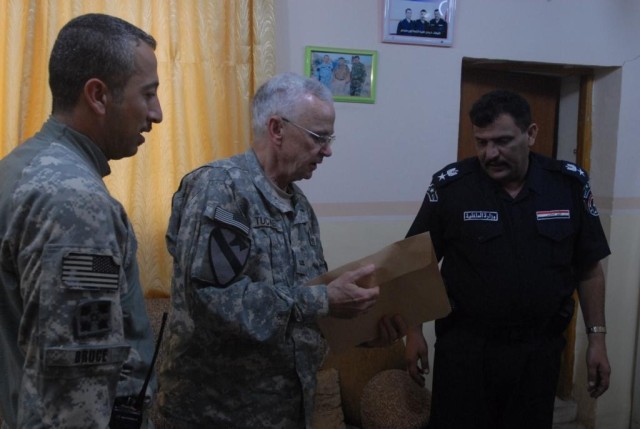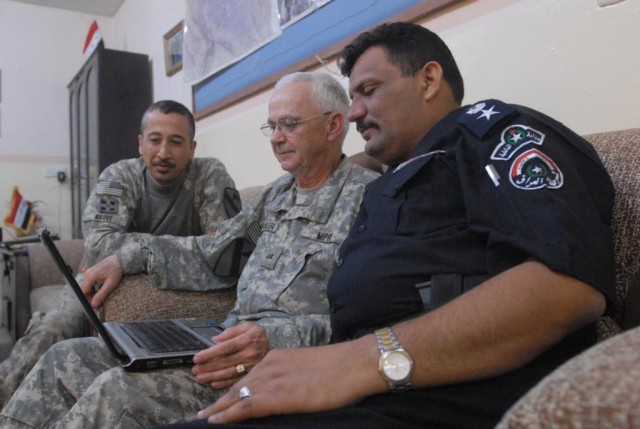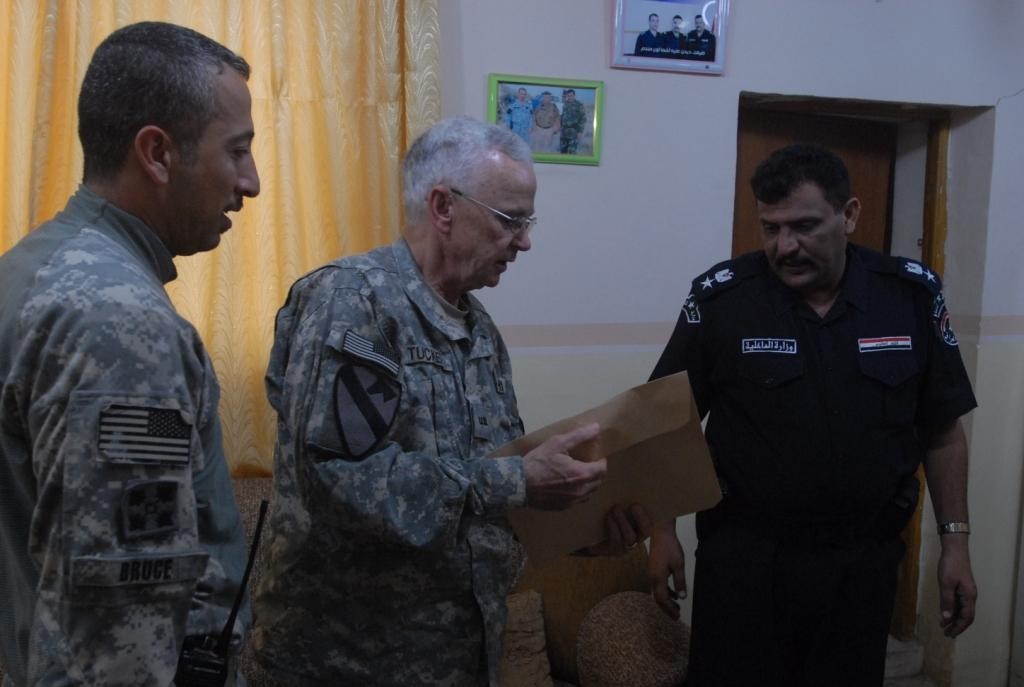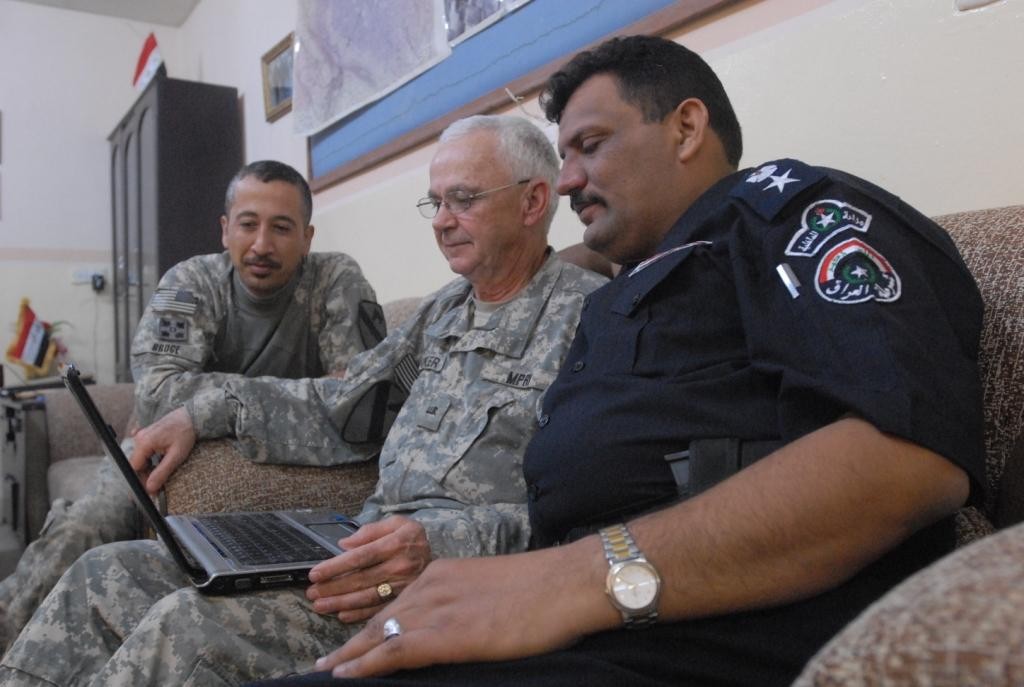FORWARD OPERATING BASE WARRIOR, KIRKUK, Iraq - As Iraqis continue to rely more on Iraqi Security Forces to arrest insurgents and wanted criminals, U.S. forces are increasingly sharing its intelligence and evidence to assist them.
In the city of Hawijah, Iraq, Iraqi Police receive U.S. gathered evidence and intelligence on a regular basis, which aids them in keeping the city safe.
The IP cannot detain or arrest criminals without proper evidence, explained Lt. Col. Fitaah, a police chief at an IP station in Hawijah.
Therefore, it is essential that both U.S. forces and IP share as much of their evidence as they can in order to make sure cases can be completed, he said.
According to Fitaah, Soldiers from the U.S. Army make regular visits to his police station to share their information on criminal cases and suspected insurgents with him.
They also share missions, intelligence, wanted person's lists and other pertinent information during routine meetings between the IP and U.S.
"The [U.S. Military] has a lot of equipment to collect evidence," said Fitaah. "All this equipment they use to help us."
This standard sharing of information is a big change from what was taking place only a year ago.
"At this point, we share most everything," said J. Tucker, a law enforcement professional working with the U.S. Army.
Eight or nine months ago it was a very small amount that could be given to the IP, but now the U.S. Army releases a lot more information and evidence to them, he explained.
Tucker said they share DNA and fingerprint evidence, Soldiers testimonies, video surveillance, photographic evidence, and anything else that might help the IP.
The more information that can be passed to the IP means there is more evidence and information that can be used in court to obtain warrants and convictions, according to Tucker.
"12 months ago, they were just arresting people on someone's word, but now they are doing it more fairly," said Tucker. "They are doing evidence-based prosecution."
According to Tucker, this sharing of information has already lead to multiple warrants being issued by Iraqi courts, and it has also helped lead to the conviction of numerous wanted criminals and insurgents.
But the U.S. isn't the only one sharing.
Fitaah said that his station gives the U.S. the information it has on suspects, and he also shares the intelligence gathered on the street by his officers with them.
Both sides are constantly doing information sharing briefs, passing intelligence back and forth to one another, explained Tucker.
"It's actually working quite well," said Tucker. "They get quite excited about sharing."
And both sides can benefit from that.
"Sharing information serves both us and them," said Fitaah. "Maybe we have half and they have half and together we have everything."




Social Sharing